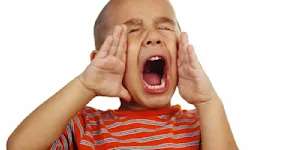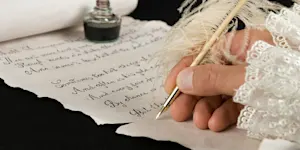What Makes This Word Tick
The word "caveat" is often used to denote a warning or stipulation. Imagine a little flag waving in the background of an agreement saying, "Hold your horses!" It's the linguistic equivalent of saying, “There’s more to this story” or “Read the fine print.”
If Caveat Were a Person…
Caveat would be that friend who's always looking out for you. They'd gently tug at your sleeve before you committed to something risky, whispering sage advice or urging you to double-check your facts. Never the party pooper, just a wise counsel.
How This Word Has Changed Over Time
Originally hailing from Latin in the early 16th century, "caveat" meant "let him beware." Over the centuries, its legal roots have branched out into common parlance, evolving into the more general cautionary usage we know today.
Old Sayings and Proverbs That Use Caveat
One of the most famous proverbs is "Caveat emptor," or "Let the buyer beware." This age-old saying cautions buyers to do their due diligence before making a purchase — still good advice in the age of online shopping!
Surprising Facts About Caveat
Did you know "caveat" is often used in legal contexts? Lawyers love their Latin, and this word often pops up in contracts and negotiations. Also, despite its serious undertones, it’s a word cherished by crossword enthusiasts worldwide.
Out and About With This Word
In everyday conversations, caveat might make an appearance when people are giving advice, crafting rules, or setting boundaries, like when someone mentions that their lake-house rental comes with the caveat of no pets allowed.
Pop Culture Moments Where Caveat Was Used
Though not as flashy as some phrases, "caveat" makes cameo appearances in movies and TV shows, often setting the stage for a twist or reveal. Think of those plots with surprise conditions or hidden challenges that characters need to navigate.
The Word in Literature
"Caveat" frequently appears in thriller or legal novels, where a twist might hinge on a condition or clause hidden within a contract. It's a favorite of authors like John Grisham or Patricia Highsmith, who expertly weave suspense through unexpected caveats.
Moments in History with Caveat
Imagine a key meeting during the Cuban Missile Crisis. The caveat? Any minor misstep could lead to full-scale conflict. Historically, decision-makers have often faced caveats that changed the course of events — not neglecting them has been crucial.
This Word Around the World
In France, the term "mise en garde" shares a similar spirit with "caveat," implying a warning or precaution. Meanwhile, in modern Urdu, you might hear "hawala," a warning typically attached to news or stories requiring caution before believing.
Where Does It Come From?
Our trusty word "caveat" has its roots embedded in Latin, where it served as the imperative of "cavere" — to beware. Lifestyles may have evolved over centuries, but keeping one’s guard up is timeless wisdom.
How People Misuse This Word
Folks sometimes swap "caveat" with "warning" when they mean something stronger than a simple condition. It's not exactly interchangeable with "red flags" or "barriers"; it's more of a gentle caution, rather than a direct stop sign.
Words It’s Often Confused With
Warning: While both imply caution, 'warning' tends to sound more urgent.
Condition: This denotes an aspect that needs to be met but isn’t always precautionary.
Disclaimer: Similar in use but more about limiting liability.
Additional Synonyms and Antonyms
Some synonyms include caution, warning, and stipulation. Antonyms might be guarantee, assurance, or confirmation.
Want to Try It Out in a Sentence?
“Sure, you can borrow my car, but there's one caveat: return it with a full tank of gas!”
















